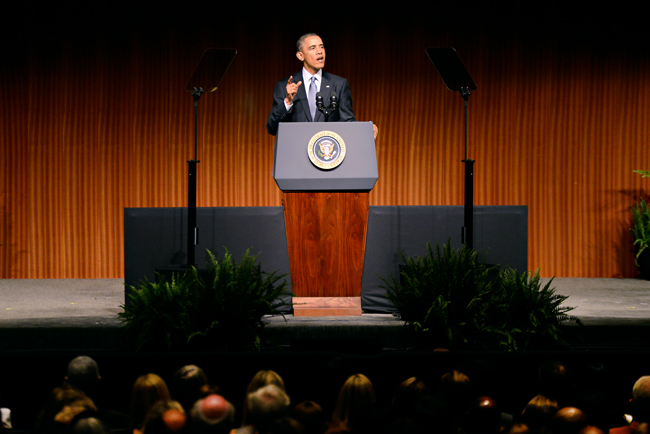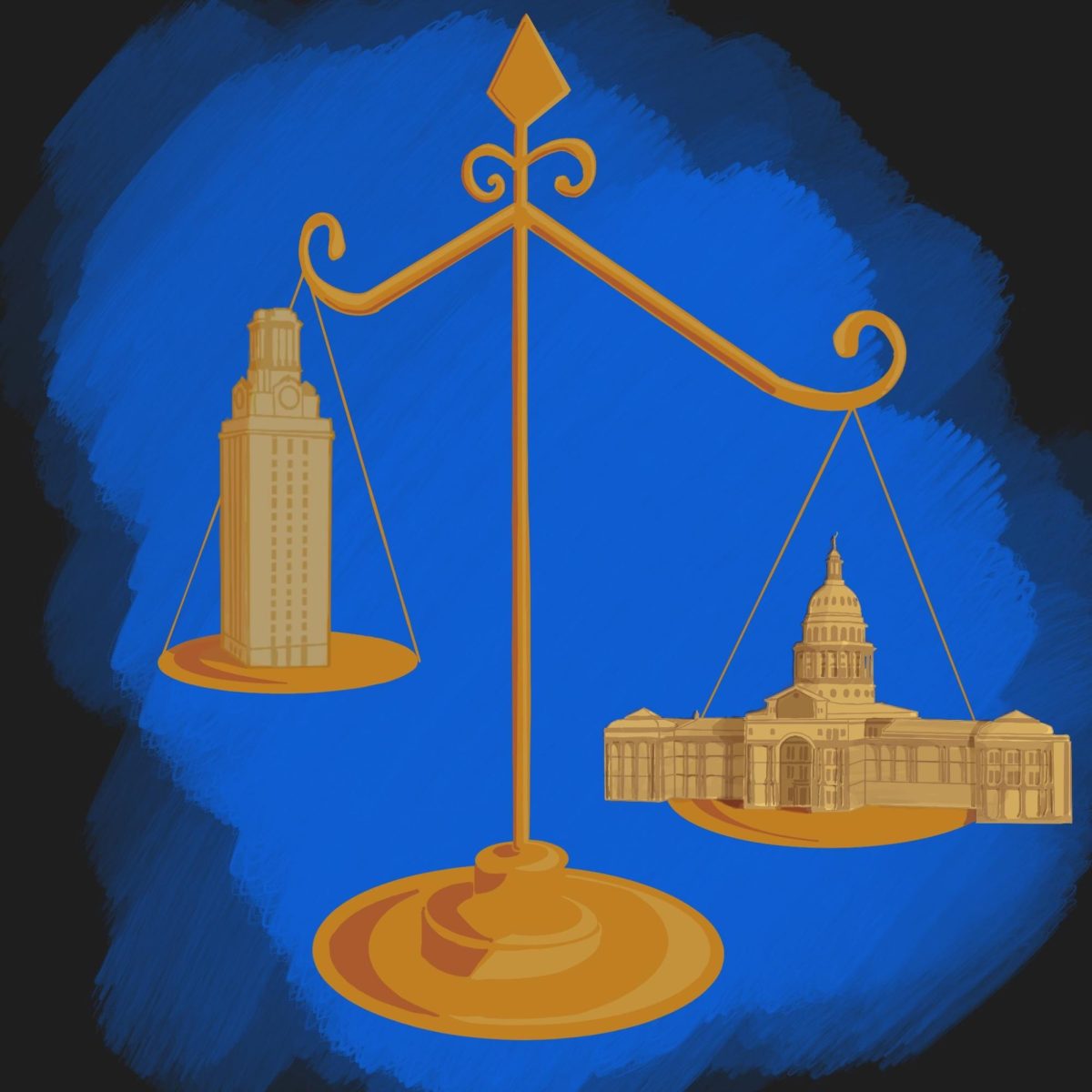President Barack Obama applauded the legacy of former President Lyndon B. Johnson and emphasized Johnson’s belief that government plays an important role in promoting equality during his keynote address at the Civil Rights Summit on Thursday.
Obama discussed challenges he has personally seen as president and said that like Johnson, he believes the presidency provides a rare opportunity to help change the course of history.
“Those of us who have had the singular privilege to hold the office of the president know that progress in this country can be hard, and it can be slow,” Obama said. “You are reminded that in this great democracy, you are merely a relay swimmer in the currents of history … but the presidency also affords a unique opportunity to bend those currents by shaping our laws and by shaping our debates, by working within the confines of the world as it is, but also by reimagining the world as it should be.”
Obama also praised Johnson’s tenacity in passing legislation and said Johnson’s transition from poverty to presidency embodied America and the ideals of progress.
“President Johnson knew that ours, in the end, is a story of optimism, a story of achievement and constant striving that is unique upon this Earth,” Obama said. “He knew because he had lived that story. He believed that together we can build an America that is more fair, more equal and more free than the one we inherited.”
Some pieces of Obama’s legislation have received negative feedback from members of Congress, including the Affordable Care Act. Obama said taking a stand for seemingly hopeless or unpopular legislation is what set Johnson apart and is what he hopes to emulate as president today.
“What the hell’s the presidency for if not to fight for causes you believe in?” Obama said, referencing Johnson’s response to his staff members who encouraged him not to pursue the Civil Rights Act.
Obama said he hopes the celebration of the 50th anniversary of the passage of the Civil Rights Act will show the younger generation of America the importance of fighting for change.
“If there is one thing that [Johnson] and this year’s anniversary should teach us, if there’s one lesson I hope that Malia and Sasha and young people everywhere learn from this day, it’s that with enough effort and enough empathy — and enough perseverance and enough courage — people who love their country can change it,” Obama said.
UT President William Powers Jr. said he enjoyed Obama’s speech and his focus on Johnson’s legacy.
“I thought it was a terrific speech,” Powers said. “I thought its focus on President Johnson’s legacy was a perfect theme and tone. The combination of celebrating — there has been change and there are challenges ahead. And it was an honor to have the president of the United States on campus.”
U.S. Rep. John Lewis, D-Georgia, introduced Obama and said his status as the first black president was especially poignant in the context of the 50-year anniversary of the Civil Rights Act. Obama was born three years before the act’s passage.
“President Barack Obama was born into a dangerous and difficult time in American history, a time when people were arrested and taken to jail just for sitting beside each other on the bus,” Lewis said. “When people say nothing has changed, I say, ‘Come and walk in my shoes, and I will show you change.’”
This article has been updated since its original posting.




















